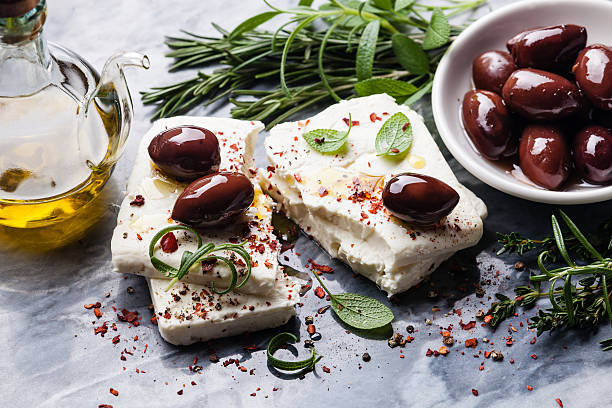Savoring the Rich Flavors of the Mediterranean: A Journey Through Greek Cuisine
Greek cuisine, with its rich flavors and healthy ingredients, has been a culinary trend for many years. Let’s explore this delightful cuisine, its history, its unique characteristics, and why it has become such a global sensation. Greek cuisine, one of the oldest cuisines in the world, has its roots in the Mediterranean region. It has evolved over thousands of years, influenced by both the land and the sea. The ancient Greeks valued simplicity and freshness, and this is reflected in their food.

Their cuisine primarily consists of grains, olive oil, fresh vegetables, and a variety of meats, including lamb, poultry, and pork. Seafood also plays an important role due to Greece’s vast coastline.
The Signature Flavors of Greek Cooking
The flavors of Greek cooking are vibrant and robust. Olive oil is used liberally, lending a distinct richness. Many dishes are also flavored with fresh herbs like oregano, thyme, and rosemary, with a hint of lemon to give it a tangy twist.
Feta cheese, often sprinkled on salads or melted on top of dishes, adds a creamy, tangy flavor. Honey, a staple in Greek desserts, lends a natural sweetness.
The Health Benefits of Greek Cuisine
Greek cuisine is often associated with health and longevity. This is primarily due to its heavy reliance on fresh vegetables, lean proteins, and healthy fats.
Research shows that a Mediterranean diet, which includes Greek cuisine, can help reduce the risk of heart disease, lower blood pressure, and promote weight loss. It’s not just healthy, but also incredibly flavorful, making it an excellent choice for those seeking a healthy yet delicious diet.
Iconic Greek Dishes to Try
If you’re new to Greek cuisine, there are several dishes you must try. Among them are Moussaka, a layered eggplant and meat dish; Souvlaki, skewered and grilled meat; and Tzatziki, a refreshing yogurt and cucumber dip.
For dessert, nothing beats Baklava, a sweet pastry made of filo dough filled with chopped nuts and honey. Each of these dishes offers a unique taste of Greek culinary tradition.
How Greek Cuisine Has Influenced Global Dining
The influence of Greek cuisine can be seen worldwide. From Greek-style yogurt in breakfast menus to Greek salads in lunch spots, its impact is undeniable.
Greek restaurants are also thriving globally, offering an authentic culinary experience. This popularity is a testament to the versatility and universal appeal of Greek cuisine.
- Some Fascinating Facts About Greek Cuisine:
- Greeks are among the top consumers of olive oil in the world.
- The tradition of “breaking plates” is often associated with Greek cuisine.
- Greek cuisine often uses the “slow cooking” method to bring out flavors.
Greek cuisine offers a unique culinary journey that combines delicious flavors with health benefits. It encourages us to savor each bite and enjoy the simple yet profound pleasures of eating. So, next time you’re looking for a new culinary adventure, why not take a trip to the Mediterranean with Greek cuisine? You might just find your new favorite dish.






